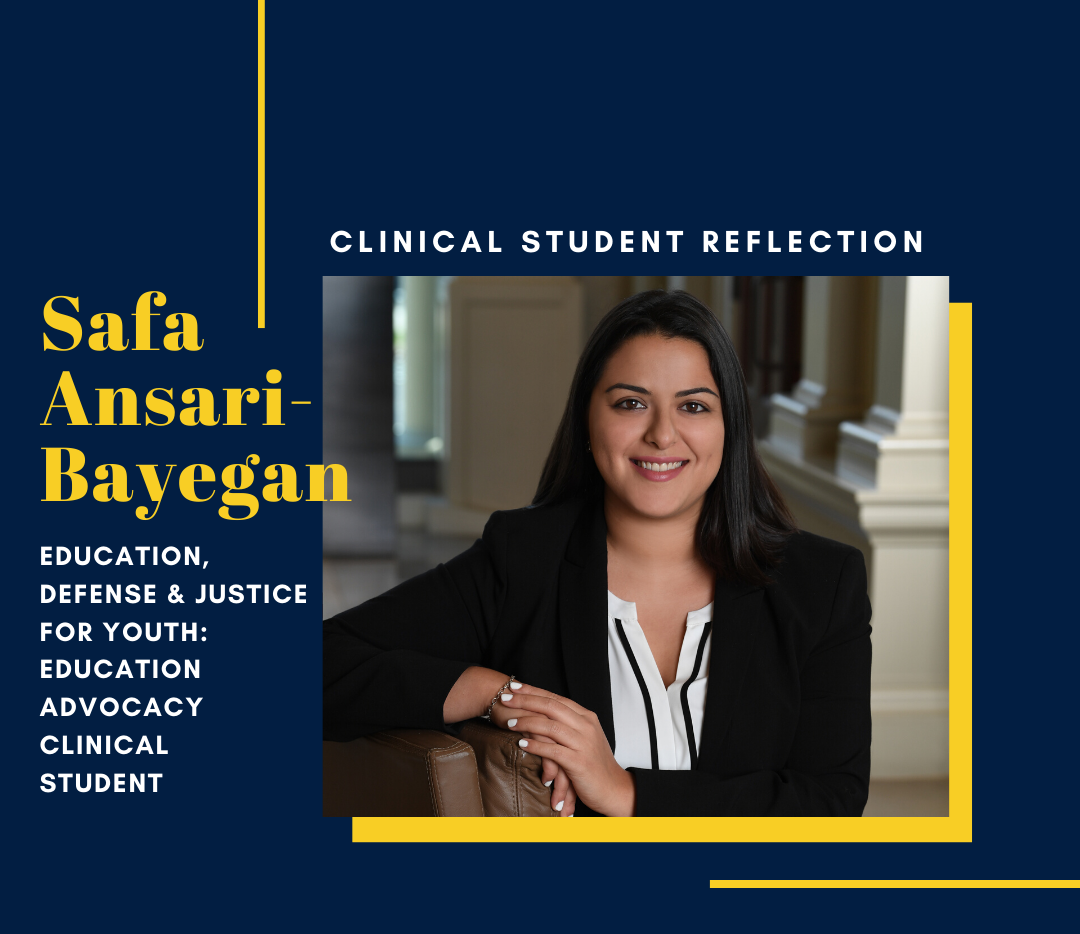
I spent the fall semester of my second year at Berkeley Law as a student in the East Bay Community Law Center’s Education Advocacy Clinic. Students in the Education Advocacy Clinic work with and advocate for youth of color with disabilities who are navigating the education and juvenile legal systems in Alameda County. Over the course of the semester, I benefited from the mentorship of many incredible EBCLC advocates, and most especially from my supervisor, Rosa Bay.
As I enter the legal profession a newly-minted lawyer, I know that my experiences at EBCLC have prepared me for this next step and have inspired me to pursue a career in representing poor people charged with crimes. I will be taking the countless lessons I learned as a clinical student to Washington, D.C. this fall to join Georgetown Law Center’s Criminal Justice Clinic as an E. Barrett Prettyman Fellow. In my first year as a Fellow, I will try cases in D.C. Superior Court and hone my advocacy skills under close faculty supervision. In my second year, I will supervise law students in the Criminal Justice Clinic, while maintaining my own misdemeanor and felony caseload. Two things stand out about my time in the Education Advocacy Clinic and will inform my work in D.C. and beyond: the importance of building trusting relationships with our clients and the power of the clinical teaching model.
More than anything, I walked away from my time at EBCLC reminded that the human element of this work is the most important. Our work is about the people who entrust us to advocate on their behalf and the relationships we build and nurture along the way. In clinic, I represented young people in special education administrative hearings and advocated for my young clients in juvenile court. The positive outcomes we secured for these young people and their families were certainly rewarding, but my passion for the work stemmed from building trusting relationships with my clients and their families despite the complex and painful situations they faced and learning how to provide holistic representation to our young clients.
One client in particular stands out as an example. We secured a terrific outcome in this young person’s case: my client was not expelled, his suspension was expunged, and the school district granted his request to transfer to a neighboring district. During our many meetings, my client shared with me his love for singing. I let him know that I hoped to hear him sing one day. Several months later, he invited me to watch him perform at a local fashion show. It was a gift to be trusted by my young clients while at EBCLC; they knew I would advocate for them fiercely and also be a source of steady support well beyond my role in their case.
Thanks to EBCLC and dedicated clinical professors like Rosa Bay, whose advice and wisdom I will always treasure, I have seen first-hand the power of the clinical model. I am convinced that the ideal way to train future practitioners is to engage students in the process, with all the strategic and ethical challenges that come with being a lawyer, and then provide them with detailed feedback and opportunities for reflection. I am very excited about the opportunity as a Prettyman Fellow to supervise law students in the clinic and contribute to a positive learning environment for them, as well as the chance to reinforce my own trial skills through clinical supervision.
I will always look back on my time at EBCLC fondly and rely on my clinical experiences in the Education Advocacy Clinic as I further develop my skills as an effective advocate and clinical teacher.